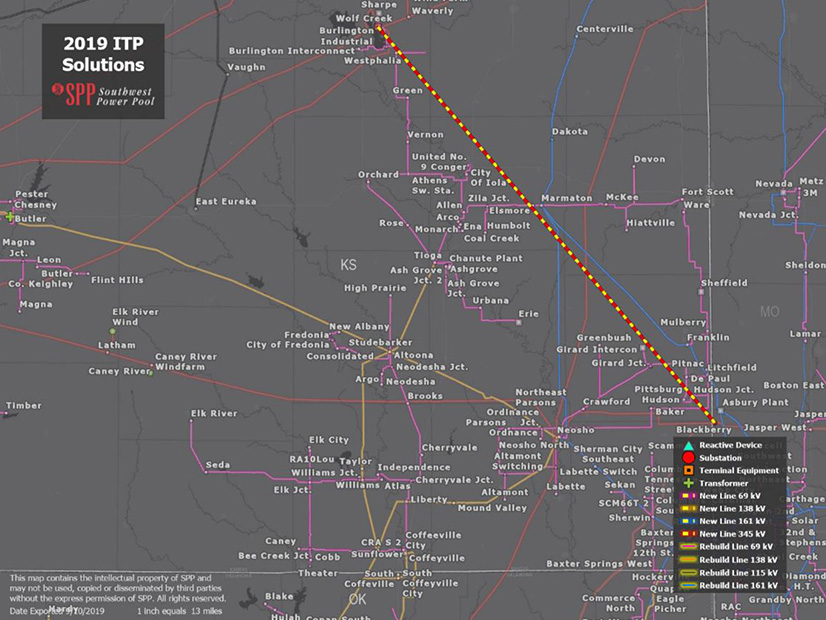FERC last week granted NextEra Energy Transmission (NEET) Southwest’s (NYSE:NEE) request to recover 100% of all prudently incurred costs associated with an $85.2 million competitive project in SPP’s Kansas and Missouri footprint, should the project be abandoned or canceled for reasons beyond the company’s control (ER22-576).
The commission Feb. 7 agreed with NEET Southwest’s contention that the project faces “significant regulatory and siting risks” that could lead to its abandonment. It said the company’s total package of incentives, including previously granted incentives, is reasonable because it addresses the risks and challenges associated with the project’s development.
The NEET subsidiary said more than $20 million is at risk, calling out other planning region-approved transmission projects that were not completed for reasons outside the developer’s control. It said it doesn’t have a rate base or revenue stream against which unrecovered development costs for an abandoned project could be offset and said the abandoned plant incentive will help attract financing for the project.
NEET Southwest is attempting to build a 94-mile, 345-kV transmission line from Wolf Creek in southeast Kansas to the Blackberry substation in Missouri. The project has a January 2025 in-service date, a full year ahead of the request for proposal’s need date.
SPP’s Board of Directors approved the project last October following an industry expert panel’s unanimous recommendation that NEET Southwest be designated the project’s transmission owner. The RTO issued a notice to construct in December. (See SPP Board of Directors/Members Committee Briefs: Oct. 26, 2021.)
The transmission provider must obtain certificates of convenience and necessity from the Kansas Corporation Commission and Missouri Public Service Commission in addition to other regulatory reviews involving federal and local agencies. It said it needs a siting permit from the KCC, which would lead to an administrative evidentiary hearing that could potentially subject the project to “significant” delays or possible abandonment if the in-service date is endangered.
The company also said it faces the risk that Missouri or Kansas state laws could create a right of first refusal or impose other limitations on nonincumbent transmission developers, such as NEET Southwest, to obtain necessary permits or to otherwise develop or own transmission assets in those states.
In Missouri, legislation has been pre-filed for consideration this month that givens incumbent TOs the right to construct, own and maintain a transmission line that has been approved by “the entity with authority for transmission planning” in a FERC-recognized planning region.
KCC staff said Friday that NEET Southwest has yet to begin the process of securing utility status so that it can then apply for a CCN and siting order.
NEET did not respond to a request for comment.
FERC Commissioner Mark Christie concurred with the decision in a separate statement, saying the commission needs to revisit “the array of incentives offered to transmission developers … for projects that never serve consumers.”
“It is imperative that incentives like the abandoned plant and [construction work in progress] incentive are revisited to ensure that all the risks associated with transmission construction are not channeled to consumers while transmission developers and owners stand to gain all the financial reward,” Christie wrote.
FERC Approves Hybrid Storage Model
FERC also approved in a letter order SPP’s request to add the definition of “hybrid storage market resources” and the provisions for their registration to the RTO’s tariff. The order is effective Feb. 19 (ER22-684).
The rule change specifies that an electric storage resource co-located or integrated with a generating resource may register the resources as a single resource in the market and may use the market storage resource model.
The hybrid model was one of 21 recommendations from the Holistic Integrated Tariff Team in 2019, intended to integrate increased renewable energy, boost reliability and improve transmission planning. (See SPP Board Approves HITT’s Recommendations.)




